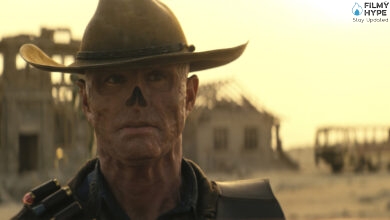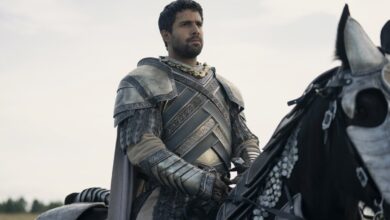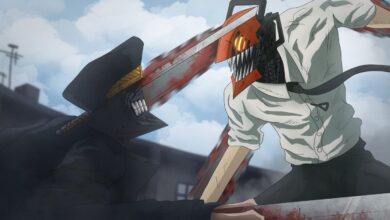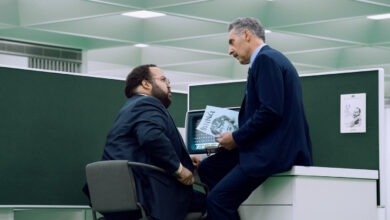Dune – Part Two Ending Explained: What Happened to Chani and What Is The Fate Of Paul Atreides?
After three years of waiting, Dune – Part Two has finally arrived in our cinemas, proving itself – as we explained to you in our review of the film “a sequel that surpasses both the previous chapter and the (albeit very high) expectations, and establishes itself as a new milestone that not only redefines the boundaries of science fiction and the modern blockbuster”. In this second chapter of the adaptation of Frank Herbert’s work, we find Paul Atreides (Timothée Chalamet), his mother Lady Jessica (Rebecca Ferguson), the diabolical Harkonnen led by Baron Stellan Skarsgård and the Fremen of Arrakis, among whom Paul will find the love, the protagonist of his visions Chani (Zendaya). If Dune – Part One perfectly depicted the world imagined by Frank Herbert, Part Two continues the narrative by becoming much more action-packed than the first but continuing to expand a universe rich in details, to which new planets, new characters, and new cultures are added.
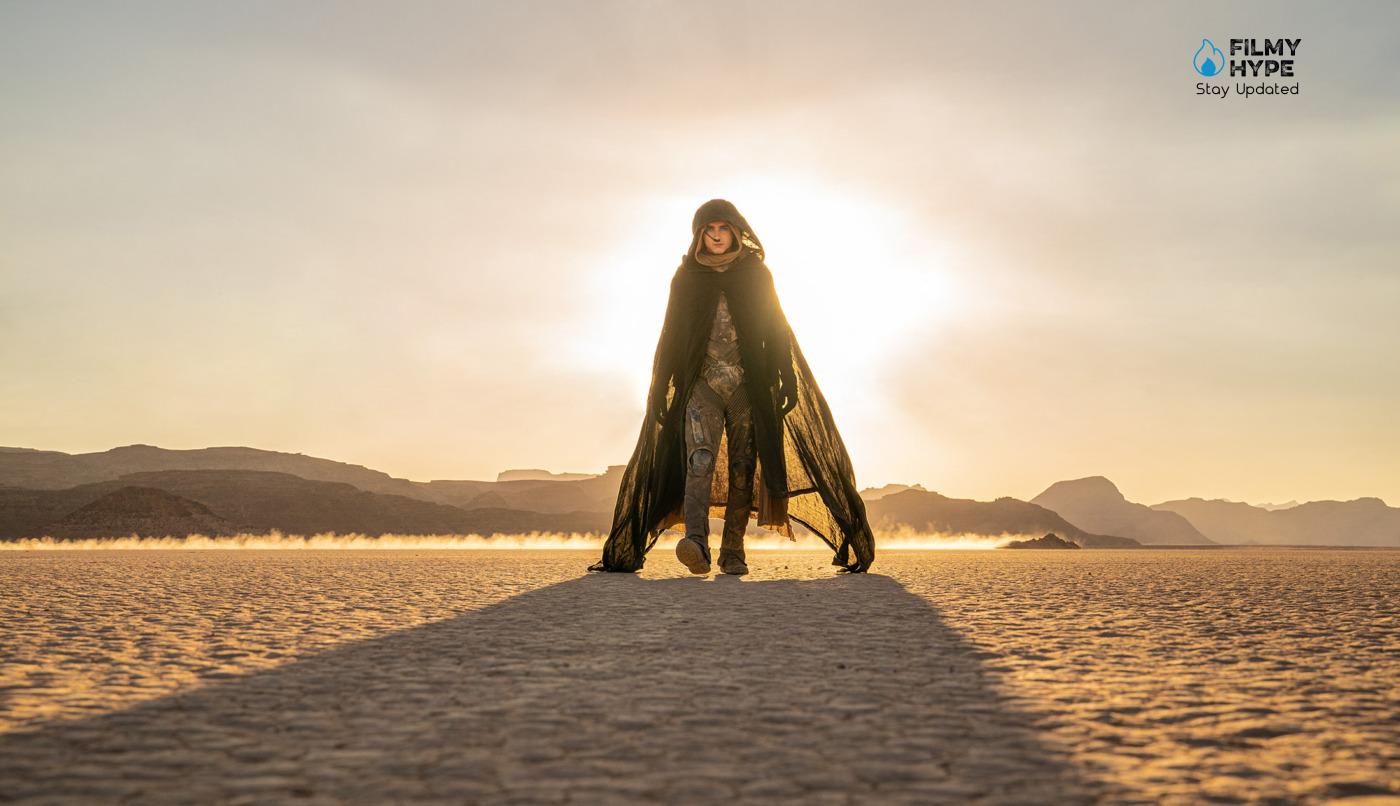
Paul Atreides’ Bildungsroman recounts his transformation from boy to leader and messianic figure, anticipating the turns that the story will take in a third part ( the screenplay of which, according to what Villeneuve stated, is already finished ): in Dune – Part Two we follow the protagonist as he is accepted by the Fremen, becoming a warrior ready to do anything to defeat the emperor and the Harkonnen, but also determined to conquer the freedom of his new homeland Arrakis. In just under three very dense hours on a narrative level, the viewer is guided to the definitive meeting between Paul and the Fremen, who now – also thanks to the influence of his mother Jessica, the new spiritual guide of the planet – see in him the long-awaited Lisan at -Gaib or Mahdi, the Harkonnen and Emperor Shaddam IV (played by Christopher Walken). In this explanation of the ending of Dune – Part Two, we will start from the clash between these three fronts, answering the questions that arise spontaneously during viewing (and for which a comparison between the film and the book is also necessary, to which we have also dedicated a more detailed study). Spoilers follow, so continue reading at your own risk.
Dune – Part Two: The Story Plot
The story picks up where we left off: Paul Atreides (Timothée Chalamet), together with his mother (Rebecca Ferguson) are on the run and have joined the indigenous people of Arrakis, the Fremen. The objective is the reconquest of the territories stolen, in a bloody way, by the Harkonnen. A vengeful plan that will bring to light inconvenient government truths, especially because it will come to light when it was the emperor (Christopher Walken) himself who plotted against the Atreides family. The extraordinary element of this sequel lies in its extreme coherence – narrative, stylistic, and tone – with the first chapter. An almost reverential continuity, in the name of an imposing solemnity and a rhythm that remains rightly staid for a large part of the story.
Paul Atreides (Chalamet) and Lady Jessica (Ferguson) managed to escape the trap plotted by Emperor Shaddam IV (Walken) and Baron Vlad Harkonnen (Skarsgard) and joined the Fremen, the people of the desert of Arrakis, the ones who fill the dreams of Duke Leto’s heir and who is awaiting the arrival of a Messiah who will come to guide them. Messiah coincidentally corresponds perfectly to the profile of Paul, whose arrival divides the indigenous population between those who firmly believe in his ascension, such as the leader of the northern tribes, Stilgard (Bardem), and those who see in him as just another foreigner who has arrived to dominate them, like Chani (Zendaya). Despite this division, Paul fits in among the Fremen, successfully participating in the military campaign against the Harkonnen and starting a love story with the girl who has always occupied his mind and her heart.
Behind her, her mother works instead, pregnant with a little girl who is already able to speak to her and her brother, to prepare the ground for what he is destined to become. The desert of Dune – Part II is constantly changing, it is welcoming, hostile, cold, hot, romantic, and horrifying. The thousand ways in which Villeneuve portrays it make it an evolving terrain depending on the needs and moments of a film that risked seeing its palette flattened and which instead proves to be extraordinarily spectacular, surprising, studied, and complex. The desert, as well as its fauna and flora, is the reflection of the Fremen, a people full of history and enormous dignity, made up of all the races of our reality who have had to suffer unbridled colonialism from the “tribes” of the so-called First World. Naive, but proud, loyal, but ferocious. A desert people who have water as their sacred element, a way to keep connected, always.
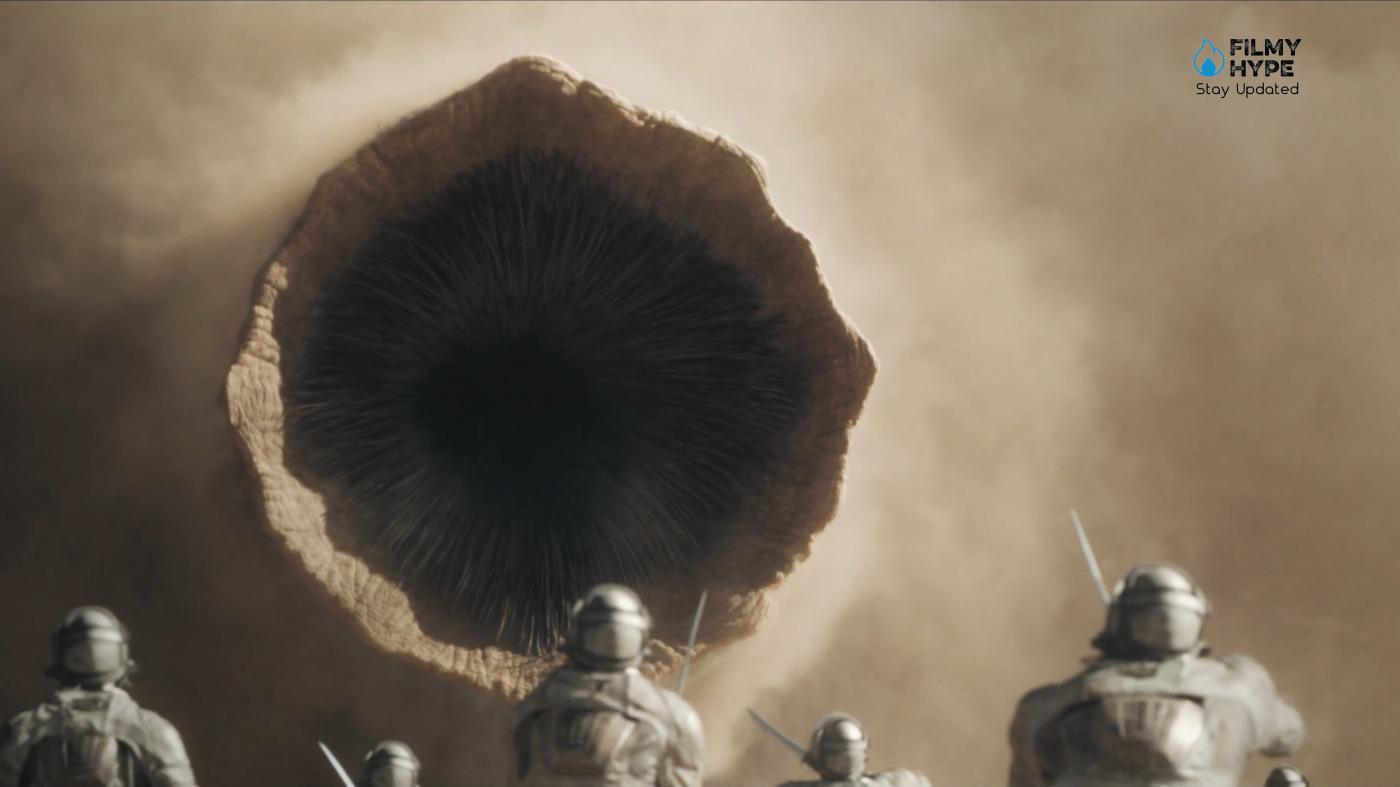
Villeneuve is in love with the Fremen as Paul is in love with Chani, the perfect representative of the spirit of his people, who does not want masters, who do not accept the Great Houses, and who the only reality he knows is one where men and women are equal. Unlike Villeneuve, however, Paul is also the man of prophecy, who has arrived to wage the Holy War and avenge his father, which is why he will have to choose whether to be Muad’dib or the Kwisatz Haderach. Not that this Dune – Part Two doesn’t improve compared to its predecessor, especially in the last act. The second chapter is, on balance, a much more action-oriented product, which however maintains the same compromises as the first Dune in terms of approach to storytelling. A necessary direction, both to prepare the ground for the finale and to maintain that strongly sacred aura that Villeneuve embraces with pride and unique ideas.
With an absolute philology also towards Frank Herbert’s novel, compared to the film starring Timothée Chalamet must appropriately make sacrifices that do not in any way distort the quality and cohesion of the plot. Dune – Part Two is a film that proudly mirrors the first. Above all in taking up ideas and situations anticipated in the past to the point of giving them a fully complete, symbolic meaning. A circle that closes so coherently that it seems to have truly been shot back-to-back. This confirms how Part 1 was nothing more than a very long prologue, a necessary act to outline the worldbuilding, a preparation ground waiting for its author to pour genius, style, and soul into the long and painful transformation of Paul Atreides into Muad’dib, shaped by a perfect and at times astonishing Chalamet.
Dune – Part Two Ending Explained: What Happened to Chani and What Is The Fate Of Paul Atreides?
Throughout the Dune sequel, we see how Paul Atreides faced a dilemma: either fully integrate among the Fremen people, even if that meant embarking on a long guerrilla war against the forces of Baron Harkonnen (Skarsgârd) and Emperor Shaddam IV (Walken), or take advantage of the legends of the natives of Arrakis about a savior messiah to consolidate their power, at the price of unleashing a massacre on a galactic scale. His mother Lady Jessica (Ferguson) supports the second option, encouraging Fremen superstitions and creating a cult around the figure of Paul. For her part, and despite her love for young Atreides, Chani (Zendaya) is convinced that these beliefs are a mere instrument of oppression. After debating between both answers, Paul will make a decision that will mark his destiny and that of the universe.
The destruction of Sietch Tabr, the Fremen village where he has lived with Chani, pushes Paul to try the water of life, a powerful narcotic that pushes his powers to see both the future and the past to the limit. This trance almost costs him his life, and also reveals a terrible truth: Lady Jessica is the daughter of Baron Harkonnen, and therefore he also carries the blood of his worst enemies. Thus, the young Atreides decides to renounce any scruples and assume his role as the messianic leader called “Muad’Dib”. After making all the Fremen his vassals, starting with the tribal leader Stilgar (Bardem), Paul challenges the emperor by threatening to use the atomic arsenal hidden in Arrakis by his father Duke Leto (Oscar Isaac) to destroy the spice Melange. This substance makes space travel possible and is found only in Arrakis.
When the Emperor accepts this challenge, traveling to Arrakis, Paul launches a brutal offensive where the Fremen reveal their full power, crushing the elite Sardaukar forces on the backs of the sandworms. After the inevitable victory, he indulges in killing Baron Harkonnen. Feyd-Rautha (Butler), the last survivor of this line, also ends up falling into his hands. In this way, Paul Atreides has the emperor and his daughter Princess Irulan (Pugh) as hostages. To make matters worse, his control over the spice prevents the other powers that are in the Empire (the Bene Gesserit Brotherhood and the Space Guild) from retaliating. To save her father’s life, Princess Irulan agrees to join the false messiah in a marriage of convenience that will make him emperor.
Fed up with so much political compromise, Chani decides to abandon Paul, calling a worm to go alone into the desert. As for the new winner, she faces one last obstacle: the other noble houses of the Empire are not willing to accept him as monarch. Paul’s response to this refusal is to give the order of battle to his Fremen troops, now converted into a horde of fanatics ready to raze the galaxy. Something that will result in that conflict that he has been trying to avoid since the story began. This is how Lady Jessica explains it to Alia, that unborn daughter with telepathic powers whose face in the future will be that of Anya Taylor-Joy: “The holy war has begun”.
The Holy War!
Meanwhile, all of the Great Houses of the Empire remained waiting in orbit around Arrakis, previously summoned by the emperor. When Paul kills Feyd-Rautha, he orders Gurney to inform the Great Houses that he is their new ruler. But Gurney returns with the message that the Great Houses refuse to accept him as emperor. This prompts Paul to order his Fremen army to attack the Great Houses as well, thus starting a Holy War fought in his name. In a significant departure from the book, the final moments of Dune – Part Two focus on Chani, who ventures alone into the desert of Arrakis, preparing to ride a worm she has summoned. From this scene we understand that the girl is rejecting Paul’s rise to power, profoundly changed in her eyes after drinking the water of life. The girl, as we are told from the beginning of the film, sees religion as a means to manipulate the weakest, to make them slaves, which is why she feels betrayed by Paul, who now leverages the adoration of the Fremen in his comparisons to become emperor and start a war.
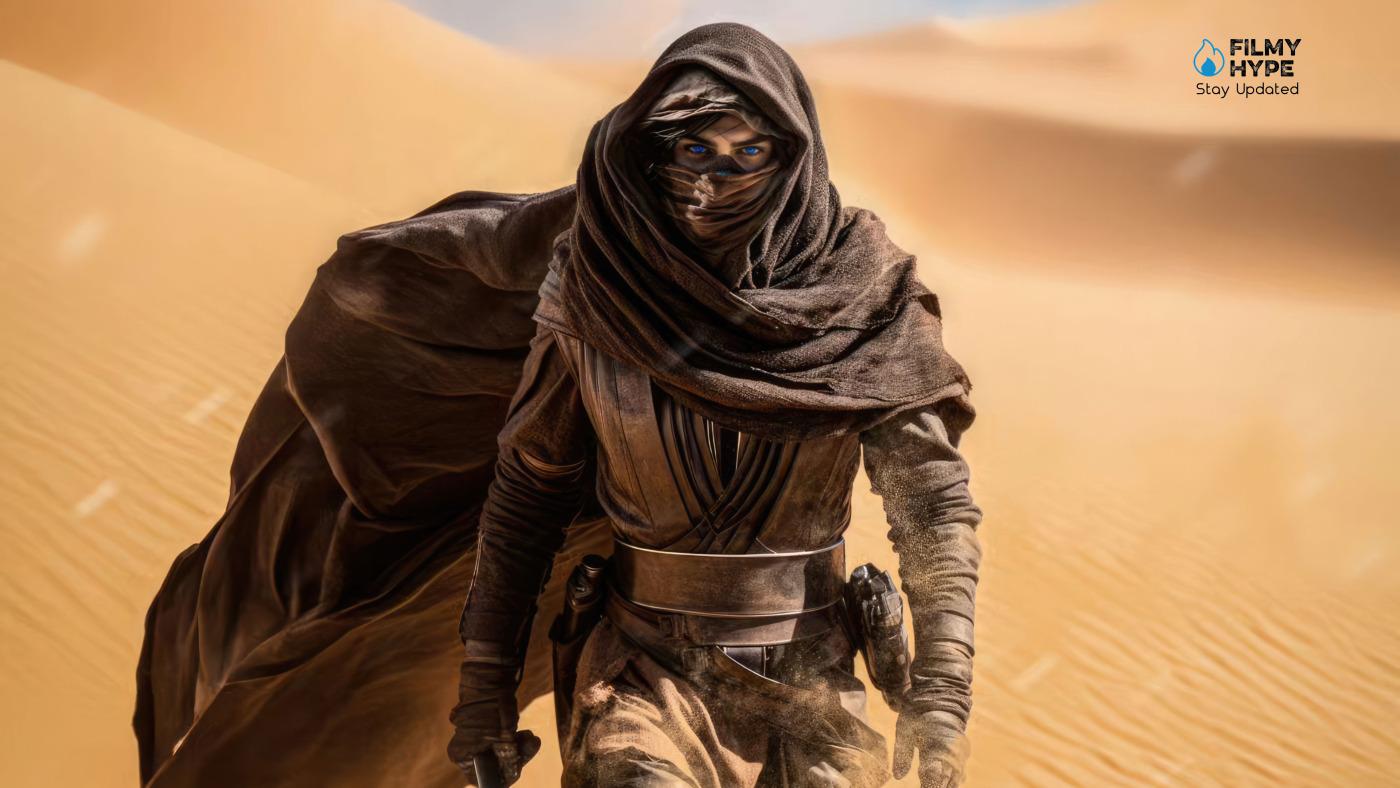
Previously, Jessica told Paul she was “sorry for Chani,” meaning she knew the girl didn’t agree with what he wanted to do. But he replies: “You’ll understand… I saw it“. This seems to foreshadow the events of Dune Messiah, the second novel, which takes place over a decade later and sees Chani give birth to Paul’s twins: Leto II and Ghanima. In that book, Chani dies during childbirth, loyal to Paul until the end. Villeneuve’s adaptation departs from the book by highlighting how Chani is also willing to distance herself from Paul, despite loving him deeply if his actions go against her principles. The woman has always stated that she only wants to fight for the liberation of the Fremen, she is not interested in following her partner into a war that will bring death, pain, and destruction throughout the Universe. However, if we think of one of Paul’s visions, shown to us in the first film, we see the young Atreides returning to Caladan welcomed by a screaming crowd, at his side, wrapped in a black veil like his, there is Chani himself. This can therefore make us think that the two will get closer, perhaps Paul has hidden something from Chani that could change her opinion of him.
Paul’s Change
A truly central point of this second film is the change of Paul, who transforms into a real leader for the Fremen, from a boy to a man. The most radical transformation, however, occurs after drinking the water of life, driven in part by his mother’s machinations. With full awareness and control of his powers, Paul can predict the outcomes of the battle against the emperor, finding the right strategy for victory. The protagonist, after drinking the poison and awakening from the coma into which he had fallen, claims to see all the possible futures of the clash, identifying the only one in which he, the people he loves, and the Fremen can survive and emerge victorious. From this statement, we understand that the choice to undertake a Holy War, so “out of character” for Paul who had always stated that he wanted absolutely nothing of the kind, could be the only solution to save the people he loves, including Chani. On the other hand, it may also be that drinking the Water of Life has irremediably changed him, making him cold and exclusively eager for power. In our opinion, however, it is less likely, if, as he predicted, Chani will get closer to him, there must be some reason that will push the girl to understand her motivations behind Paul’s actions.
What Will Dune – Part 3 Be About?
The conclusion of Dune – Part Two recreates the events of the book rather faithfully, which seems to pave the way for Dune – Part 3, which will be titled Messiah, like the second novel in Frank Herbert’s saga (in the Italian translation Messiah of Dune). In the book we follow, several years after what happened in the first novel, Paul’s journey as emperor and the great difficulties to which his kingdom will be subjected (including a conspiracy in which Princess Irulan also participates). Messiah of Dune is the last book that will have Paul and Chani as protagonists, in the following one we find the twin sons of the two, Leto and Ghanima, as protagonists. However, Villeneuve has stated that his adaptations of the Herbert saga will end with the third.


